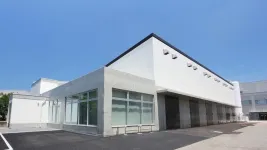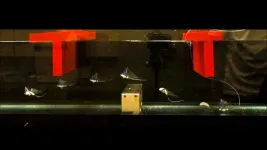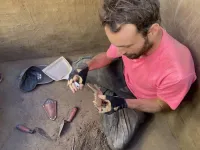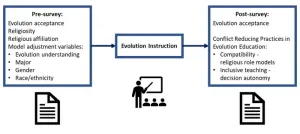(Press-News.org) WINSTON-SALEM, N.C. – December 4, 2024 — The Piedmont Triad Regenerative Medicine Engine (PTRME), funded by the National Science Foundation (NSF), has announced a groundbreaking investment of $2.5 million in the region’s regenerative medicine industry through its inaugural Ecosystem Building Grant program. This milestone underscores PTRME’s leadership in regenerative medicine and commitment to positioning the Piedmont Triad as a global hub for innovation. Six innovative companies have been awarded grants to support the commercialization of regenerative medicine products. This funding is expected to catalyze technological advancements, strengthen the local economy, and drive the region’s competitiveness on a global scale.
“These grants represent more than funding—they are a bold statement about the Piedmont Triad’s role at the forefront of regenerative medicine,” said Tim Bertram, CEO of PTRME. “By investing in these pioneering companies, we are not only accelerating scientific breakthroughs but also fueling economic growth, creating jobs, and reinforcing the region’s position as a leader in advancing manufacturing scalability, supply chain operations, and quality standards of regenerative technologies.”
Six Companies Leading Innovation and Regional Economic Development
Each project funded by the Ecosystem Building Grant addresses critical challenges in regenerative medicine technologies, from advancing organ preservation to developing innovative tissue engineering strategies. The six companies selected for grants and their pioneering projects include:
Biorg, Inc. is focused on developing immune-competent tumor organoids for applications in immuno-oncology. This project will advance organoid biomanufacturing in the Piedmont Triad region, translating academic research into commercial products. By successfully commercializing personalized tumor organoids, the project aims to enhance the field of oncology and showcase the region's expanding expertise in regenerative medicine.
Brinter, Inc. is focused on manufacturing high-strength, regenerative orthobiologic implants designed to repair tendons. These implants are made from advanced materials that promote regeneration of damaged tendons, which are crucial for mobility and function in the body. Brinter’s technology aims to improve the regenerative process by providing stronger, more effective implants that can help tendons recover faster and more fully.
BMI OrganBank’s project aims to commercialize organ banking technology and revolutionize transplantation. The company plans to use the funding to address two key barriers to bringing regenerative medicine into the clinic: transporting living organs and tissue from the manufacturing site and confirming their viability prior to implantation. With more than 100,000 people in the U.S. on transplant waiting lists at any given time, this innovative technology has the potential to significantly improve the organ transplant process and enhance efficiency.
BioSpherix, LLC is establishing the BioSpherix Center for Cytocentric Technology at PTRME in Winston-Salem to accelerate the translation of cell-based technologies in the Piedmont Triad region. The center will focus on utilizing BioSpherix’s Xvivo System®, which offers a more efficient approach to cell culture technologies. This system is not only designed to streamline the manufacturing processes but also simplifies training for the incoming workforce, making it easier for new talent to quickly adapt and contribute to the growing field.
Humabiologics, LLC is advancing human collagen biomanufacturing for innovative regenerative applications. Their project introduces human collagen as a new class of biomaterials to drive progress in regenerative medicine. By leveraging the unique properties of human collagen, the company aims to improve outcomes in regenerative applications, enhancing the effectiveness of various biomanufacturing processes.
FetTech, LLC is focused on developing a gel that helps tissues work together and regenerate more effectively. By advancing this technology, FetTech, is helping to speed up the development of solutions for complex challenges seen with damaged tissues. Ultimately, this work has the potential to improve quality of life by making regenerative technologies more accessible, effective, and scalable.
Building a World-Class Regenerative Medicine Ecosystem
The PTRME’s Ecosystem Building Grant program is only the beginning of the Engine’s investment in the Piedmont Triad region. This initiative underscores PTRME’s dedication to advancing regenerative medicine innovation while fostering economic growth. As the first step in a broader effort, this program sets the stage for a thriving, sustainable regional economy driven by cutting-edge science and transformative opportunities.
“These initiatives represent a strategic investment in the economic future of the Piedmont Triad region,” said Jesse Thornberg, COO of PTRME. “By supporting these high-potential companies, we are driving economic diversification, attracting additional investment, and laying the groundwork for sustained financial growth. Our engine is designed to create high-value jobs, boost regional competitiveness, and position the Piedmont Triad as a hub for innovation that delivers tangible returns for the community and we're just getting started.”
About The Piedmont Triad Regenerative Medicine Engine
The Piedmont Triad Regenerative Medicine Engine (PTRME), is a National Science Foundation (NSF) funded program awarded to the Wake Forest Institute for Regenerative Medicine, supporting economic development in a 16-county region of central North Carolina through use-inspired research, technology translation, and workforce development at Wake Forest Institute for Regenerative Medicine, Winston-Salem State University, North Carolina Agricultural and Technical State University, and Forsyth Technical Community College. The Engine is a key driver of economic growth in Central North Carolina. By fostering innovation in regenerative medicine, PTRME supports the development of new technologies, creating jobs and attracting investment to the region. The initiative unites academia, industry, and government to accelerate commercialization, provide resources to startups, and train a skilled workforce, thereby cementing the Piedmont Triad as the leading hub in the rapidly growing regenerative medicine industry.
About Wake Forest Institute for Regenerative Medicine
The Wake Forest Institute for Regenerative Medicine is recognized as an international leader in translating scientific discovery into clinical therapies, with many world firsts, including the development and implantation of the first engineered organ in a patient. Over 550 people at the institute, the largest in the world, work on more than 40 different tissues and organs. A number of the basic principles of tissue engineering and regenerative medicine were first developed at the institute. WFIRM researchers have successfully engineered replacement tissues and organs in all four categories – flat structures, tubular tissues, hollow organs and solid organs – and 17 different applications of cell/tissue therapy technologies, such as skin, urethras, cartilage, bladders, muscle, kidney, and vaginal organs, have been successfully used in human patients. The institute, which is part of Wake Forest University, is located in the Innovation Quarter in downtown Winston-Salem, NC, and is driven by the urgent needs of patients. The institute is making a global difference in regenerative medicine through collaborations with over 500 entities and institutions worldwide, through its government, academic and industry partnerships, its start-up entities, and through major initiatives in breakthrough technologies, such as tissue engineering, cell therapies, diagnostics, drug discovery, biomanufacturing, nanotechnology, gene editing and 3D printing. Learn more at WFIRM.org.
Media Contact: Stefanie Walling, Comm-WFIRM@wakehealth.edu
END
NSF-Piedmont Triad Regenerative Medicine Engine (PTRME) awards $2.5 million in grants to drive economic growth
2024-12-04
ELSE PRESS RELEASES FROM THIS DATE:
How plant enzymes can adapt to higher temperatures
2024-12-04
Images
EAST LANSING, Mich. – As global temperatures rise, it’s imperative that plants can adapt to new and changing conditions.
As global temperatures rise, it’s imperative that plants can adapt to new and changing conditions.
Michigan State University researchers from the Walker lab are looking at ways to give plants an assist. More specifically, their research aims to help plants adapt to changing temperatures by introducing engineered enzymes that will increase plants’ heat tolerance.
“I would say that the main goal of our research is to prepare plants for elevated temperatures because, with climate change, ...
The Gerontological Society of America congratulates new 2024 Awardees
2024-12-04
The Gerontological Society of America (GSA) — the country’s largest interdisciplinary organization devoted to the field of aging — is proud to acknowledge the work of 34 outstanding individuals through its prestigious awards program.
GSA salutes outstanding research, recognizes distinguished leadership in teaching and service, and fosters new ideas through a host of awards. Nominated by their peers, the recipients’ achievements serve as milestones in the history and development of gerontology.
The awardees were honored at various ...
New facility for evaluating hydrogen-compatible materials now complete
2024-12-04
1. NIMS has established and begun operating a new testing facility to evaluate the mechanical properties of materials exposed to low-temperature hydrogen environments. This facility can create hydrogen conditions across a broader range of temperatures and pressures than any other facility of its kind in the world. It is designed to assess the properties of materials when in contact with low-temperature gaseous or liquefied hydrogen, with the goal of developing cost-effective materials for hydrogen supply chains. This approach is expected to reduce the cost of producing and operating ...
Manta rays inspire the fastest swimming soft robot yet
2024-12-04
A team of researchers has beaten its own record for the fastest swimming soft robot, drawing inspiration from manta rays to improve their ability to control the robot’s movement in the water.
“Two years ago, we demonstrated an aquatic soft robot that was able to reach average speeds of 3.74 body lengths per second,” says Jie Yin, corresponding author of a paper on the work and an associate professor of mechanical and aerospace engineering at North Carolina State University. “We have improved on that design. Our new soft robot is more energy efficient and reaches a speed of 6.8 body lengths per second. In addition, the previous model could only swim on the surface ...
With a quarter-century of data on gun usage, new study examines when and why people start carrying guns and if they persist in doing so
2024-12-04
A new long-term study that has documented the lives of a diverse sample of children over the past three decades shows that the majority of gun carriers began to carry in adulthood, not adolescence. These two groups — which the authors call “adult-onset carriers” if they began carrying after 21 years of age and “adolescent-onset carriers” if their carrying started prior to 21 years of age — have very different patterns in exposure to violence prior to carrying, persistence in carrying, and in actual gun usage.
In “Dual Pathways of ...
How did humans and dogs become friends? Connections in the Americas began 12,000 years ago
2024-12-04
"Dog is man's best friend" may be an ancient cliché, but when that friendship began is a longstanding question among scientists.
A new study led by a University of Arizona researcher is one step closer to an answer on how Indigenous people in the Americas interacted with early dogs and wolves.
The study, published today in the journal Science Advances and based on archaeological remains from Alaska, shows that people and the ancestors of today's dogs began forming close relationships as early as 12,000 years ago – ...
A third of people from Chicago carry concealed handguns in public before they reach middle age, major 25-year study finds
2024-12-04
Around a third (32%) of people who grew up in Chicago have carried a concealed firearm on the city streets at least once by the time they turn 40 years old, according to a major study of gun usage taking in a quarter of a century of data.
Urban sociologists behind the research argue that such carry rates are likely to be similar across many other major US cities.
The research suggests that almost half of men (48%) have carried a concealed gun by the age of 40, compared to just 16% of women.*
The study, published in Science Advances, is one of the few to track gun usage in the same US population ...
Why some individuals believe fake news and conspiracies
2024-12-04
People who are credulous are less capable of recognizing fake news, and along with mistrustful adults, are more susceptible to conspiracy thinking and vaccine hesitancy, according to a study published December 4, 2024, in the open-access journal PLOS Global Public Health by Michal Tanzer and colleagues from University College London, U.K.
Epistemic trust is the readiness to regard knowledge communicated by others as significant, self-relevant, and generalizable to other contexts. Disruption to the capacity for epistemic trust may undermine healthy functioning that requires rapid, efficient checking and updating of social knowledge ...
Misokinesia, intolerance of others' fidgeting and repetitive body movements, can cause people to experience intense reactions, negative emotions and relationship strain, per qualitative study
2024-12-04
Misokinesia, intolerance of others' fidgeting and repetitive body movements, can cause people to experience intense reactions, negative emotions and relationship strain, per qualitative study
###
Article URL: https://journals.plos.org/plosone/article?id=10.1371/journal.pone.0313169
Article Title: I struggle with your fidgeting: A qualitative study of the personal and social impacts of misokinesia
Author Countries: Canada, U.S.
Funding: We received funding from Natural Sciences and Engineering Research Council of Canada (NSERC) for our study. The funders had no role in study design, data collection and analysis, decision to publish, or preparation of the manuscript. END ...
Not red in tooth and claw: Teaching evolution with conflict reduction practices increases acceptance
2024-12-04
Students in biology classes accepted the theory of evolution more often when it was taught with conflict-reducing practices, including an emphasis on religious compatibility and autonomy, according to a study published December 4, 2024 in the open-access journal PLOS ONE by Rahmi Ourota Aini and Elizabeth Barnes from Middle Tennessee State University, U.S., and colleagues.
Evolution is of the foundation of biology, but currently half of the United States population rejects the idea of human evolution. One of the most important factors in the acceptance of evolution ...





